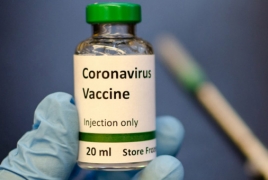
One way to quickly see if a coronavirus vaccine works would be to immunize healthy people and then deliberately expose them to the virus, some researchers are suggesting, according to The New York Times.
Proponents say this strategy, called a human challenge trial, could save time because rather than conducting tests the usual way — by waiting for vaccinated people to encounter the virus naturally — researchers could just infect them.
Challenge trials have been used to test vaccines for typhoid, cholera, malaria and other diseases. For malaria, volunteers have stuck their arms into chambers full of mosquitoes to be bitten and infected. But there were so-called rescue medicines to cure those who got sick. There is no cure for Covid-19.
For both ethical and practical reasons, the idea of challenge trials for a coronavirus vaccine has provoked fierce debate.
In a draft report published last month, the World Health Organization said that challenge trials could yield important information, but that they would be daunting to run because of the potential of the coronavirus “to cause severe and fatal illness and its high transmissibility.”
The report, by a 19-member advisory panel, provided detailed guidelines about the safest way to conduct challenge trials, recommending that they be limited to healthy people ages 18 to 25 because they have the least risk of severe illness or death from the virus. The virus — in a dose carefully calculated to produce an infection but unlikely to cause severe illness — would be dripped into their noses.
But the panel also said its members split nearly in half over several major issues. They were divided over whether trials should be carried out if no highly effective therapy had been identified to treat participants who got sick; over whether studies in healthy young adults could predict the efficacy of a vaccine in older people or other high-risk adults; and over whether challenge trials could really speed vaccine development.

